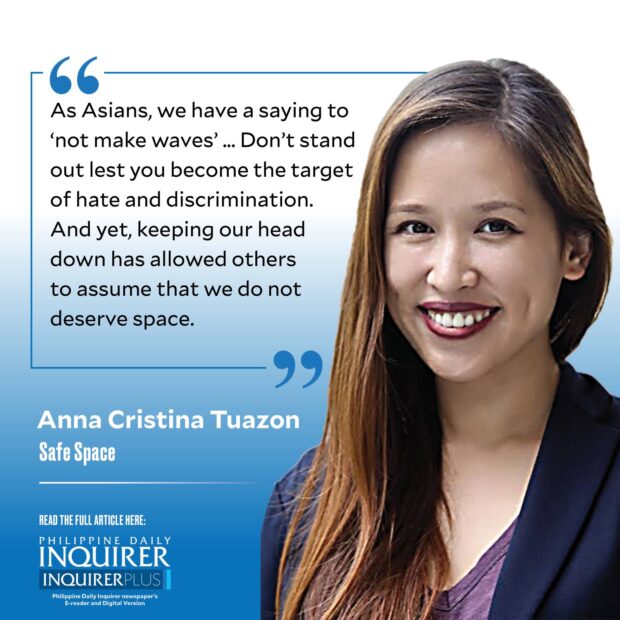Whenever we do a sociometry exercise in class wherein I ask students to arrange themselves in relation to each other’s social dimensions, I also have them notice who is not being represented by the group. When I ask them to group themselves according to region, I have them reflect on which regions are not represented. I do the same for other dimensions like gender, sexuality, religion, and socioeconomic status. It is not always easy or apparent to notice who has not been given space. In a country dominated by Catholics, for example, we tend to forget that other religions are not being given space for prayers in our meetings or to acknowledge that certain laws favor Catholic values over others. It can also be difficult for people to realize how many of our spaces are favored toward men. We always tout that we have gender equality merely because we have had two female presidents. Two out of 17 presidents is not gender equality.
Witnessing the Filipinas enter the Fifa (International Federation of Association Football) Women’s World Cup for the first time opened our country to athletic possibilities we never thought was within reach. For them to even win a single game against seasoned heavyweights was a David vs. Goliath moment. It reminded me of what EJ Obiena, the world’s No. 2 pole vaulter and the first Filipino athlete to qualify for the 2024 Paris Olympics, had said to me when I asked him in an interview what makes him stay with the Philippine team despite everything he went through: “I took pride and glory in seeing our flag where it was not meant to be there.”
As Asians, we have a saying to “not make waves.” In other words: conform, assimilate, and keep your head down. Don’t stand out lest you become the target of hate and discrimination. And yet, keeping our head down has allowed others to assume that we do not deserve space. There are spaces that are kept from us as Filipinos. Some politicians caution us to play nice with other countries, even with the risk of unnecessarily conceding sovereignty over our territories. In professional spaces, we are encouraged to simply emulate and mimic practices from other countries, not realizing that we have unique professional strengths in fields like medicine, nursing, and psychology. The realm of sports is just as harsh, with certain sports thinking that the Philippines has no business being there.
As my partner and I settled in to watch the Filipinas’ games in the Fifa Women’s World Cup as relative newbies to the sport, I warned him that his heart will be ripped out of him several times. We watched football games on TV before but was never this invested. To finally see the Philippine flag on the screen and to hear all the Filipino fans who flew all the way to New Zealand chanting their support, it was a spectator experience like no other.
In a country seemingly obsessed with men’s basketball, these women have proven to us that other sports deserve our attention, too. Women’s sports tend to suffer from lack of funding and sponsorships compared to their male counterpart, yet they also tend to excel better in international tournaments. Why isn’t athletic talent and potential enough to garner the needed support?
Because sports are not traditionally seen as spaces for women. When we think of strength, speed, and agility, we stereotypically think that men have the advantage—not just in wins, but as a form of entertainment. (Take the incident of a YouTuber who was banned from all NBA-related events because he made a prank out of sleeping courtside at a women’s NBA game, seemingly to show how boring it was.) And yet, our first gold medalist in the Olympics was Hidilyn Diaz. Our first foray into the Fifa World Cup was the Filipinas. Our Philippine Blu Girls reached the playoffs in the Softball World Cup group stage. I am in awe of our female athletes and their determination to make space for themselves in world stages that refuse to give them an inch.
Let us learn from these pioneers: Do not be afraid to take up space. This lesson goes beyond sports or gender. Raise your hand. Raise your voice. Notice whose voices are not being heard and whose faces are not being seen and make space for them. Once we realize we deserve space, we can reach new heights.
—————-
aatuazon@up.edu.ph
